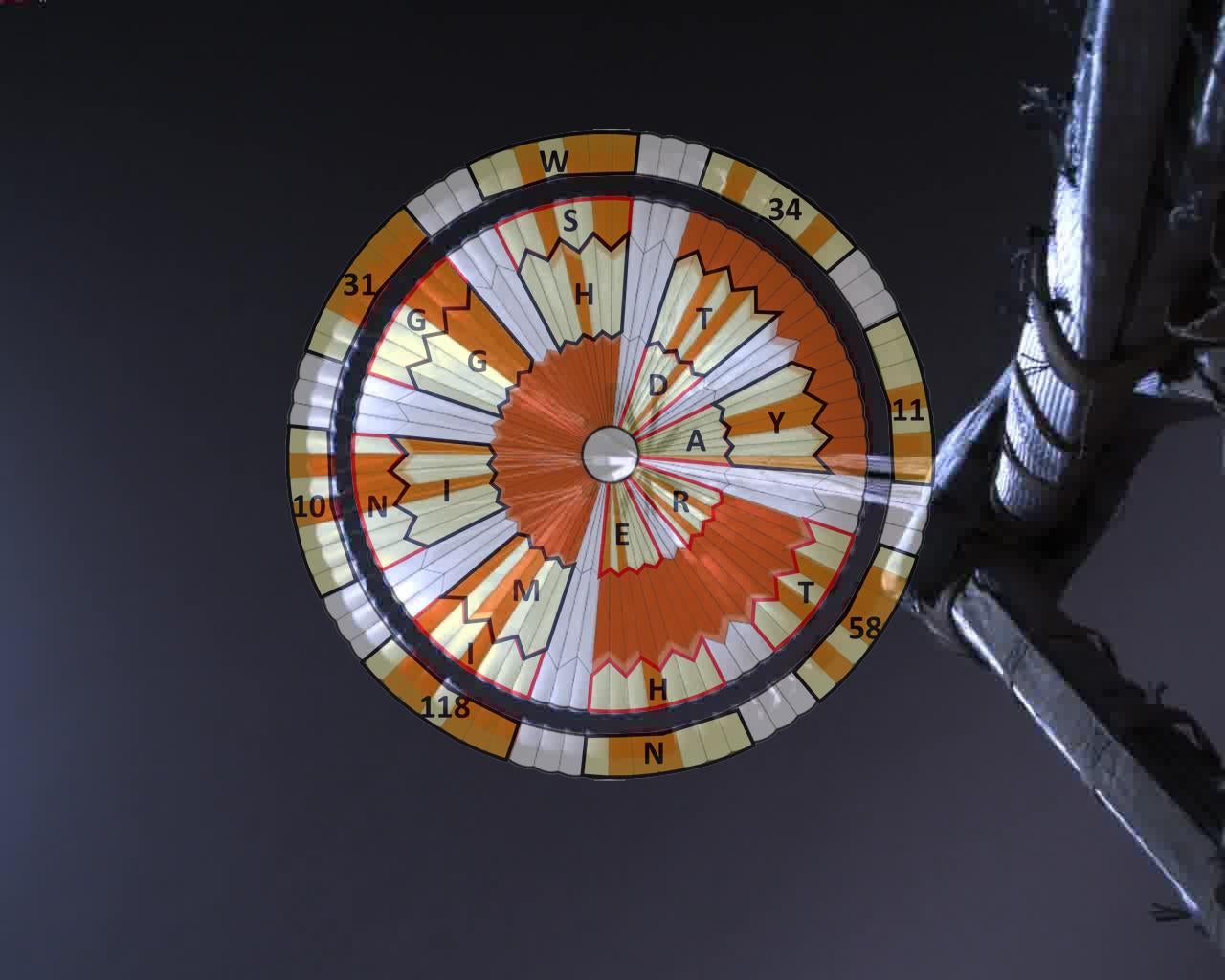Space Business: Build and Renew
Dear readers,


Dear readers,
Welcome to Quartz’s newsletter on the economic possibilities of the extraterrestrial sphere. Please forward widely, and let me know what you think. This week: The new chair of the House space subcommittee, parachute codebreakers, and Elon’s latest foray into science.
🚀 🚀 🚀
As the new US administration weighs its extraterrestrial options, a key figure will be rep. Don Beyer, the Virginia Democrat who will chair the space policy subcommittee in the US House of Representatives. Beyer, the only certified mechanic in Congress and a science-fiction buff, will be tasked with enacting the annual legislation that lays out NASA priorities. Quartz spoke to Beyer yesterday; our conversation has been condensed and edited for clarity.
What are your goals for the committee this year?
I’d love for us to reauthorize NASA this year at new funding levels that make sense with the different ambitions the new president and administration will have. I’m looking forward to fighting for continuing to expand our financial commitment to NASA. I’d love to have Mars and the moon still on track. I had a Mars 2033 bumper sticker on my car until it finally fell off. I’m not sure we have to go to the moon by 2024 to get to Mars by 2033. I’m looking forward to a comprehensive look at the schedule.
Per NASA’s expectations or requirements, we underfunded it last year, and I’m not sure that we’ll be able to catch up, given all the other budget pressures, especially with monthly child tax credits and COVID relief and infrastructure. We’re running pretty big deficits right now.
How do you expect NASA’s priorities to change under president Biden?
I’ve not talked with any of the folks at the White House yet, [but] the one that jumps out is that, we’re coming after an administration where the former president thought climate change was a hoax, and climate scientists weren’t allowed to go to climate conferences. [Former lawmaker and NASA administrator] Jim Bridenstine and I had battles my first few years, because he came from Oklahoma and didn’t believe climate change was real. Now, to his credit, I don’t think NASA retreated on their climate science. I do think the next director will probably elevate its priority.
What kind of person would you like to see lead NASA?
Interesting to hear [names like former Senator] Bill Nelson, [former astronaut] Pam Melroy…[former NASA chief scientist] Ellen Stofan is a dear friend, I don’t think she even wants it—that’s my understanding from her, that she’s very happy at the [National Air and Space Museum.]
I would love to see somebody who would continue to build and renew the culture at NASA, make people feel really valued and needed and that the mission is important—that people don’t want to go home. That tends to be someone who is pretty good at the math and physics, and also a good leader and manager. A lot of folks want the first woman, which would be great for me.
Your predecessor on the committee was notably opposed to using public-private partnerships to build landers for potential crewed missions to the lunar surface. Where do you stand on that?
I’m not as rigid…I think that the private sector has an enormous amount to offer here. Not just private sector à la Lockheed Martin and Boeing, but you look at what Orbital Sciences [now part of Northrop Grumman] and Virgin Galactic and SpaceX and all these other smaller firms—sometimes led by very rich people—have been able to do. I don’t want to shut them out. Where you can have a meaningful public partnership, we should continue to pursue it.
I love our NASA engineers, and I don’t think everything should be done on the profit motive, but having a little bit of a profit motive and market forces mixed in can be helpful. I represent more federal employees than any other member of Congress; I also represent a lot of government contractors who are managing their people to also contribute a lot.
Dave Thompson, who started Orbital Sciences, has been a friend for 30 years. I remember when he was a poor MIT graduate with three or four people and the first bunch of rockets crashed, and he built it into a really successful company that also was able to very cost-effectively take supplies up to ISS.
We saw human spaceflight return to the US last year, and this year we expect the first tourists at the International Space Station since 2008. What does that mean to you?
I think the long-term view, if we jump up to your grandchildren, maybe a whole lot more of us will be going into space. I think that’s wonderful…I love the idea of space tourism. In the short run it’s going to be really rich people, sort of societal inequity there. In the old days, it was first the rich people who had cars, go on airplanes, took trains, but little by little we’ve lifted an enormous number of people out of hunger and out of poverty. We have to start someplace.
China looms large as a rival in space, and Congress has forbidden NASA from working with China. How do you view that relationship?
I am on the collaborationist, cooperative side. Not just because at the end of Andy Weir’s book it was the Chinese who helped save the Martian. The dilemma, in the short run and probably the medium run with China, is there are huge human rights violations, and those concern me more than the economic system…what they’ve done with the Uighurs, what they’ve done in Hong Kong, the threat to Taiwan, these are all things where we have to be really strong.
If they are not playing by a lot of other rules in terms of good international relationships, then it’s going to be hard. I would love for us to get to a point, 10 years or 15 years down the road, where we are strategic competitors but we can also partner on things like space. We’ve got lots of issues with Russia right now and yet we are still doing things in space together. That has been very helpful and constructive, I think, for mankind. It’d sure be a whole lot better if we can be partners, or even strategic competitors, but competitors where we are all playing by the same rules.
What excites you about space exploration?
The two things I’m most excited about, I’m plagiarizing [Obama-era NASA administrator] Charles Bolden. I said, what’s NASA’s central mission? And he said science, he didn’t hesitate. And then fifteen seconds later, he said, well, Mars. I agree with him. For me the really exciting part is all the new science that will be accessible to us because of NASA. And then secondarily, I’m really excited about interplanetary travel. The 2033 timeline, I hope it doesn’t get pushed, but even if it gets pushed, as long as it’s still happening while you’re alive, it’s really important. I’m just fascinated to see, as we go deeper, what it does to philosophy, to religion, even to politics.
🌘 🌘 🌘
IMAGERY INTERLUDE
Did you catch the incredible landing footage from the Mars Perseverance rover? How about the secret message encoded in its parachute? The cheeky folks at NASA’s Jet Propulsion Lab (previously known for their bespoke wheels) decided to encode their unofficial slogan, Dare Mighty Things, into the parachute pattern using binary code. Here’s an annotated shot of the ‘chute:

👀 Read this 👀
TikTok’s real kingmaker is its code. The popular video-sharing platform’s algorithm prioritizes pushing new clips into user feeds—and, unlike other social media platforms like Facebook and Instagram, that content does not need to come from people the person is already following. How the TikTok algorithm selects the videos and users it pushes is a zealously guarded secret—which can mean artists are less likely to make it big on the platform than they may assume, even if they go viral.
Read more in our field guide about how TikTok has changed the music industry, and how TikTokers are getting record deals.
🛰🛰🛰
SPACE DEBRIS
M&A. Redwire, the space-focused private equity firm, made its seventh acquisition this week, buying Deployable Space Systems, which makes flexible solar panels, among other products. Redwire is one of a handful of private equity firms seeking to combine small and medium-sized space businesses into more robust conglomerates, one sign of maturation of the industry. Another one to watch: Last month, former NASA administrator Jim Bridenstine landed at Oklahoma private equity shop Acorn Growth Companies to advise on the aerospace sector.
Full Nelson. The scuttlebutt in Washington this week is that former Florida senator Bill Nelson would like to be appointed NASA administrator. Nelson is a longtime space fan and even flew on the Space Shuttle as a congressman in the 1980s, but at 78 years old and on the record saying politicians shouldn’t run the space agency, his name raised eyebrows in the space community. The White House says it isn’t close to naming a NASA chief.
Hayley’s Comet. The first tourist heading to orbit on a SpaceX Dragon spacecraft who isn’t dynastically wealthy will be Hayley Arceneaux, a 29 year-old physician’s assistant at St. Jude’s Children’s Research Hospital and cancer survivor. Selected as part of the Inspiration 4 mission expected to take off on an orbital jaunt later this year, Arceneaux will join billionaire Jared Isaacman, a donor to St. Judes to be selected at random, and the winner of a marketing contest held by Isaacman’s company, Shift4.
Elon requests blood. New research published in the journal Nature with Elon Musk’s name on it has revealed a surprise: In April 2020, as the SpaceX founder was publicly downplaying the coronavirus pandemic on Twitter, his company was trying to get access to scarce tests to track the virus. This led to a collaboration with researchers at several universities seeking to study Covid-19 antibodies in a large population, which voluntarily enrolled some 4,000 workers at the company. The research may help scientists understand how the immune system reacts to the virus.
Still Biden time… One month into the Biden administration and it’s still not clear if the National Space Council, chaired by the vice president, will be the venue for coordinating space policy across the US government. Senator Roger Wicker, the top Republican on the Senate science committee, makes the case that the council should stay.
Your pal,
Tim
This was issue 85 of our newsletter. Hope your week is out of this world! Please send all NASA administrator rumors, your favorite space TikToks, tips, and informed opinions to [email protected].